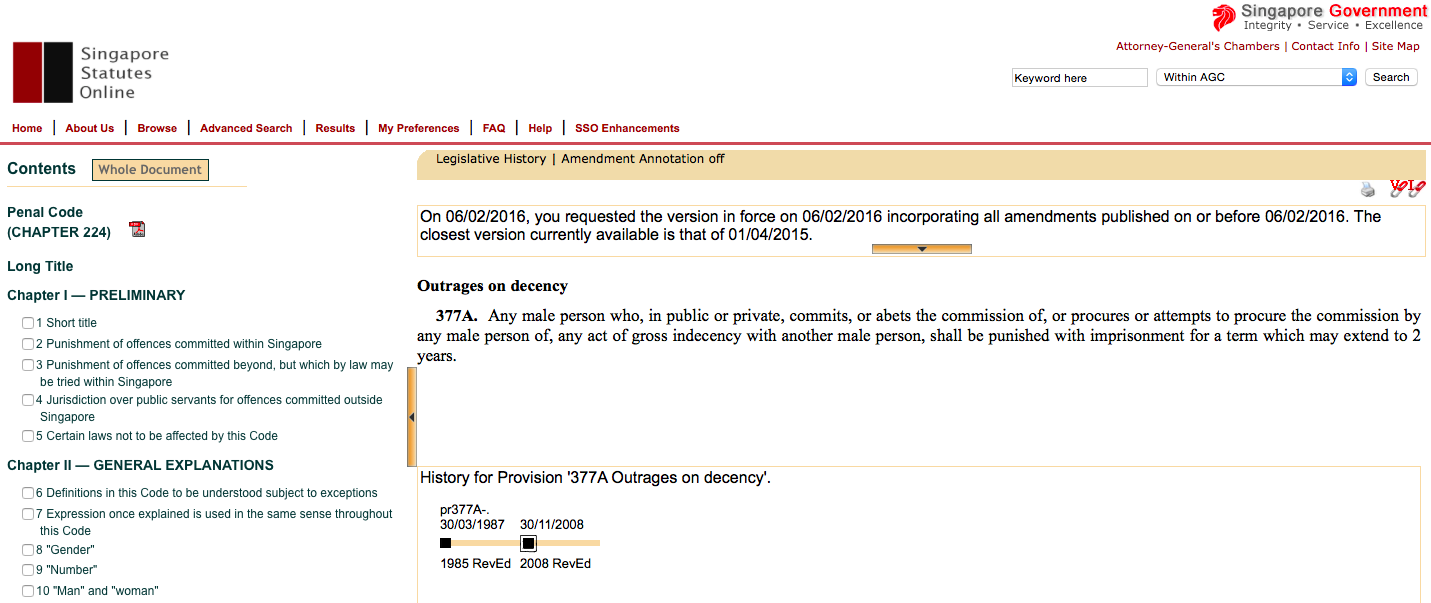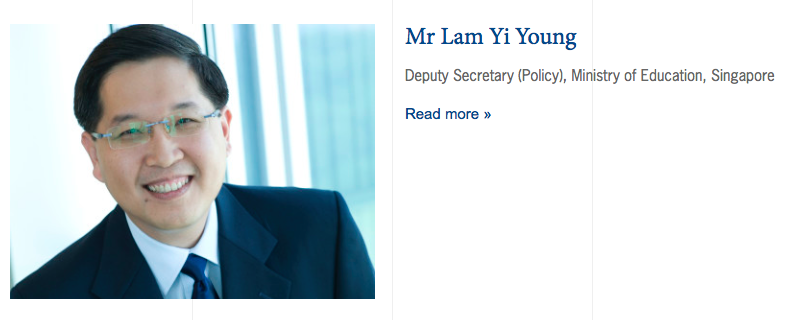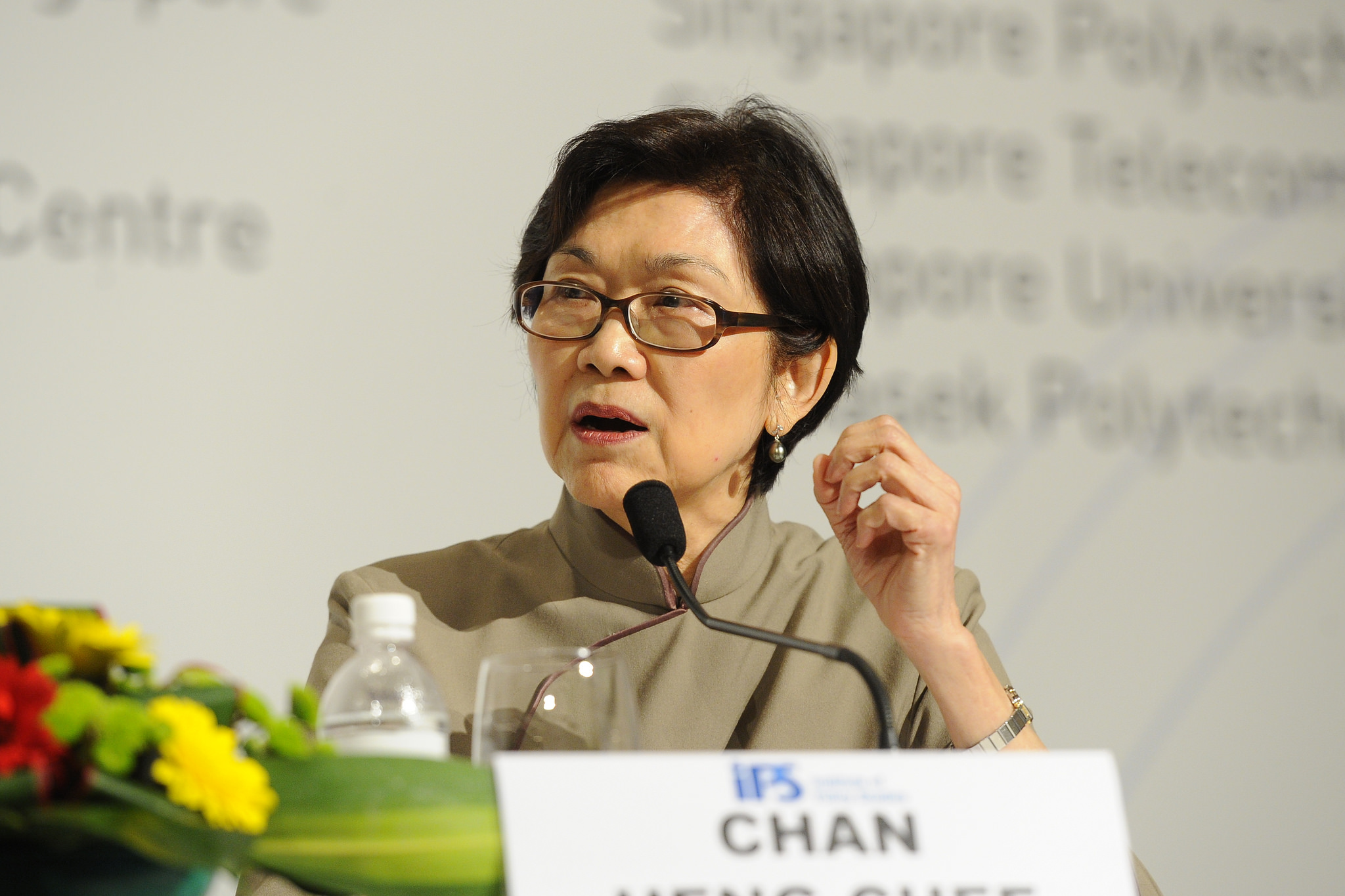There's been some disquiet at the Yale-NUS campus in the past week, in the wake of Ambassador-at-Large Chan Heng Chee's recent comments on Singapore's most (in)famous law: Section 377(a) of the Penal Code, which bars anal sex between males under any circumstance.
 Screenshot from Singapore Statutes Online
Screenshot from Singapore Statutes Online
Near the end of last month, Chan led an inter-agency delegation to Geneva for Singapore's second universal periodic review (UPR) with the United Nations, as part of our obligations for the UN to see if our practice of human rights is in line with international standards and recommendations.
This takes place every four and a half years, by the way.
There, on Jan. 27, as we all would expect, she repeated the Singapore government's current position on the arguably archaic and un-enforced law — that it will stay, because our society is largely still conservative, but will also not be used against any person or people who might "break" it.
Despite the context Chan was speaking in, and the hat she was wearing when she made those comments, several students at Yale-NUS voiced unhappiness about it.
It started with an opinion piece in a Yale-NUS publication, called The Octant, by a guest writer going by the name of Nicholas Carverhill, where he said the following:
"Ambassador Chan is, admittedly, merely acting as a mouthpiece for the Singapore government’s oft-repeated position on the issue — discriminatory laws on the books, but not in practice. Be that as it may, it is unacceptable that Yale-NUS College, a community composed of a strong LGBTQI+ student population, retain Ambassador Chan as a member of its Governing Board so long as she must advocate for this position."
This intriguingly ironic argument goes on:
"Regardless, if Yale-NUS is to live up to its claim of “creat[ing] a pluralistic and inclusive college community, in which all students are able to openly express the multiple social and personal identities they hold,” it cannot have leadership that must actively advocate for policies that contradict this commitment—as Ambassador Chan has this past week."
By the way, there could possibly be students who have social and personal identities that might possibly identify with those of the government's current position, which, arguably, is one of many applicable ones on this issue. But never mind. The piece ends with this, following an acknowledgement of Chan's contributions to the school board:
"Nonetheless, we abandon the core of our College’s commitment to diversity and inclusion if we choose to sacrifice our LGBTQI+ peers at the altar of political expediency. Let there be no mistake about it, that is what retaining Ambassador Chan would entail if all else remains equal."
According to a report in Yale University's student newspaper, Yale Daily News, the school's LGBTQ-friendly group released a "statement of concern" over Chan's statements in late January at the UPR, saying they wanted to dialogue with her about the issue.
While the Yale-NUS administration was reported to be pleased with the ongoing debate among its student body, the school's President, Pericles Lewis, had this to say:
"[Chan] has been an integral member of our governing board, and a firm believer in our mission and vision to build a community of learning, where all viewpoints are heard and a respectful understanding of different opinions and beliefs is encouraged."
Speaking of Chan's position on Yale-NUS's board as a government representative, here's another member of the same board, just for your info:
 Screenshot from Yale-NUS website
Screenshot from Yale-NUS website
Also, since we appreciate bold and diverse opinions, as much as we hope the folks at Yale-NUS do, here's one from another Singaporean Ambassador-at-large, Bilahari Kausikan:
These'>
Posted by Bilahari Kim Hee P. S. Kausikan on Friday, 5 February 2016
Top photo: Institute of Policy Studies.
If you like what you read, follow us on Facebook and Twitter to get the latest updates.
